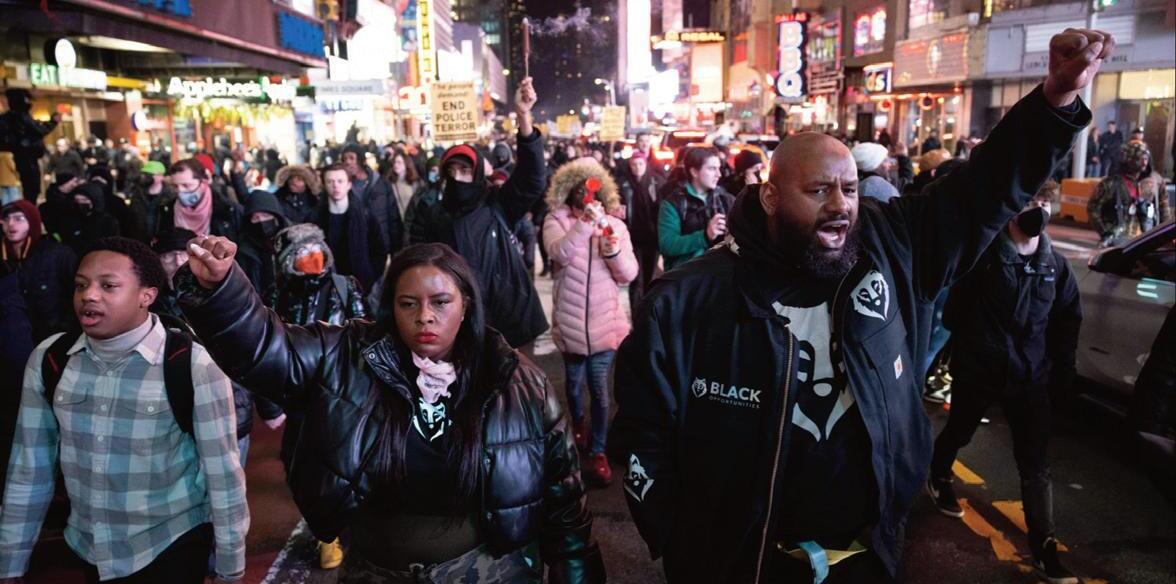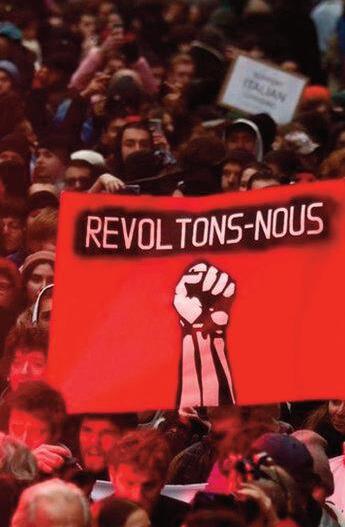
4 minute read
US: Tyre Nichols’ murder We need mass protests to end racist policing
Below we publish an abridged article from Socialist Alternative US. You can read the full version at socialistalternative.org
NICHOLS, A 29 year old father, was stopped on January 7 for reckless driving by the SCORPION Unit, a specialized unit of the Memphis Police department that carries out “hot spot” policing. Memphis Police Chief CJ Davis said the department has not been able to substantiate whether the reckless driving stop was warranted. That night, Nichols was hospitalized in critical condition with broken bones and liver failure. He died three days later.
The officers have been charged with kidnapping, official misconduct, official oppression, and second degree murder. As of this writing, they are out on $250,000 bail, and four of the five will remain free during the trial. There are also concerning reports paramedics failed to intervene that need to be explained. While this time they have been prosecuted (undoubtedly because of the legacy of mass protests following George Floyd), we need to keep up the pressure for a total transformation of policing in the U.S.
The footage of Tyre Nichols’ murder provides grisly detail to the basic reality that racist police brutality continues to have deadly consequences for Black and brown people in this country. The fact that the officers were Black doesn’t change this. The entire SCORPION unit, of which these officers were a part, is designed to trick poor Black and brown people into committing crimes (often of self defense).
The circumstances that led to Nichols’ murder were set in motion long in advance, and the underlying reasons for his death need to be addressed. We can’t let the political establishment claim that this is about a few bad apples. The entire structure of policing in the U.S. has this brutality as its logical consequence. Police forces operate with neartotal impunity, they are armed to the teeth with military grade weaponry, and the crimes that they’re tasked with “preventing” are in most cases crimes of poverty.
We need mass protests on the scale of the response to the murder of George Floyd. This time, the movement needs a set of demands that can address police brutality, and deal with politicians who offer thoughts, prayers, and big promises, only to betray the movement later.
We need mass, non-violent, multiracial protests across the country that disrupt business-as-usual. We need an immediate purge of the police of all cops with a record of racism and excessive force in the community. Put policing under the control of democratically elected civilian boards with power over hiring and firing policies, reviewing budget priorities, and to subpoena.
As the crisis of racist police violence continues to escalate, it is only a matter of time before a movement revives in the streets. However, it will be crucial to bring forward the lessons of the George Floyd rebellion in order to win against a system of racist police brutality. During the movement in 2020, Democrats in Congress and in city governments spoke out of both sides of their mouths — pledging support to the movement while kettling protesters and raising police budgets. These same leaders may send out the National Guard to suppress protests of Nichols’ murder.
We need an independent movement rooted in working class Black communities, not the Democratic Party and NGO’s. We need real planning meetings where working class Black people can democratically shape the movement and its demands. Black workers are at the forefront of a resurging labor movement, and unions need to play a role in building a sustained, multi-racial, working class fight back against racism and inequality. We need to put policing in the control of democratically-elected civilian review boards with real power to hire, fire, and subpoena. These should also have the power to set department priorities, and decommission all violent terror squads like the SCORPION Unit. We need to tax billionaires and corporations to win a massive investment in housing, jobs and social programs. With working people — and particularly Black and brown working class communities and youth — at the helm, ordinary people can build a movement to put an end to bloody practices like hot-spot policing, and racist police violence as a whole
By Anya Duxbury
IN RESPONSE to Macron’s proposal to increase the pension age from 61 to 64, 2.5 million people in 260 towns and cities across France protested in February. The eight main trade unions in France (CFDT, CGT, FO, CFE-CGC, CFTC, Unsa, Solidaires, FSU) have come together to coordinate strike action, the first time such mobilisations have been seen since 2010. There is immense potential for a wide-scale general strike movement to happen.

ISA members in France report that the mood of the workers is combative and determined, and the workers are increasingly naming the entire political and ruling elite as their enemy. For example, electricity workers organised in the CGT have threatened to cut off electricity to billionaires and politicians, to show them what it’s like to experience energy poverty. At the same time they have refused to cut off energy for those who cannot afford to pay and have put hospitals and other services on cheaper energy rates. These actions have a huge impact on the profits of big business and increase the effectiveness of strike action. Responding to criticisms of this action, a French trade union leader replied “it’s not legal, but it’s moral”.
The workers movement here can learn much from the strikes in France. The last few months have seen nurses, the Housing Executive, universities and many more out on strike in Northern Ireland, and it is simple to see the coordination of these strikes as the next logical step to creating a more cohesive and effective movement.
The success of February's mobilisations provides a powerful springboard for the French working class to build towards a general strike, showing what is really necessary to fight against the horror and inequality of capitalist society. Without coordinating the strikes and building the strongest movement, individual battles will be fought, maybe even won, but the system that oppresses all of us will remain the same.










